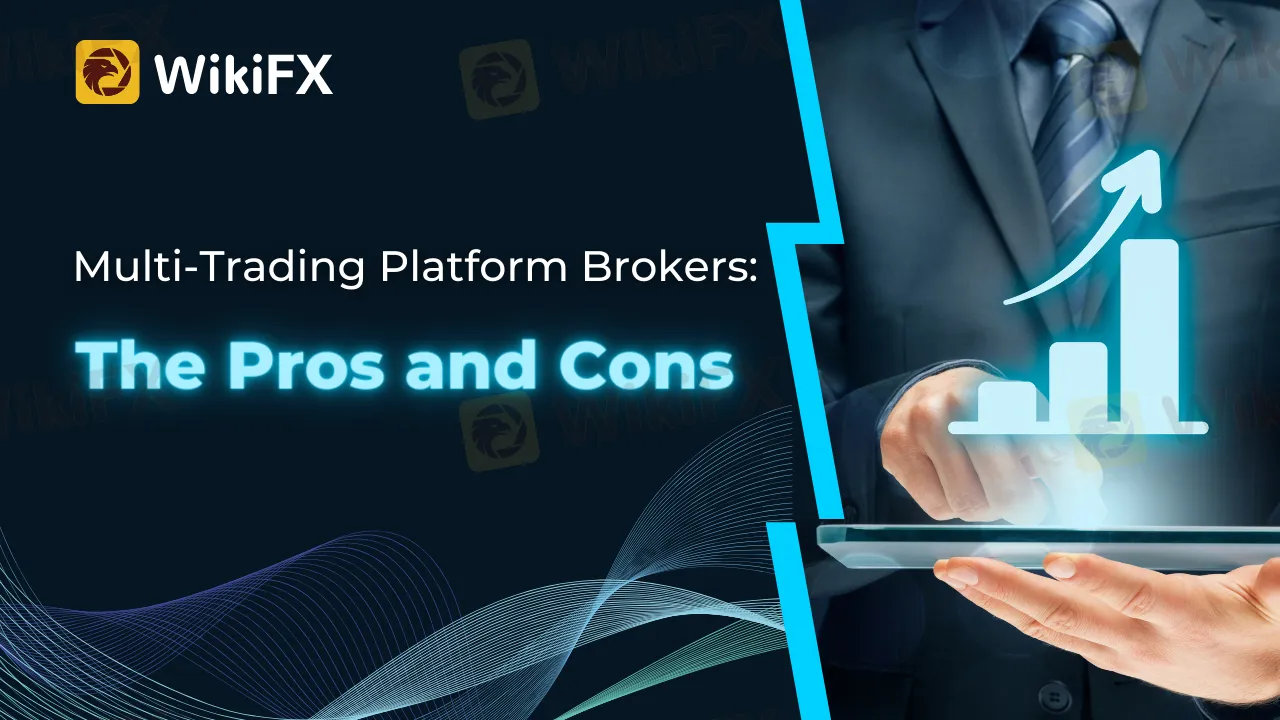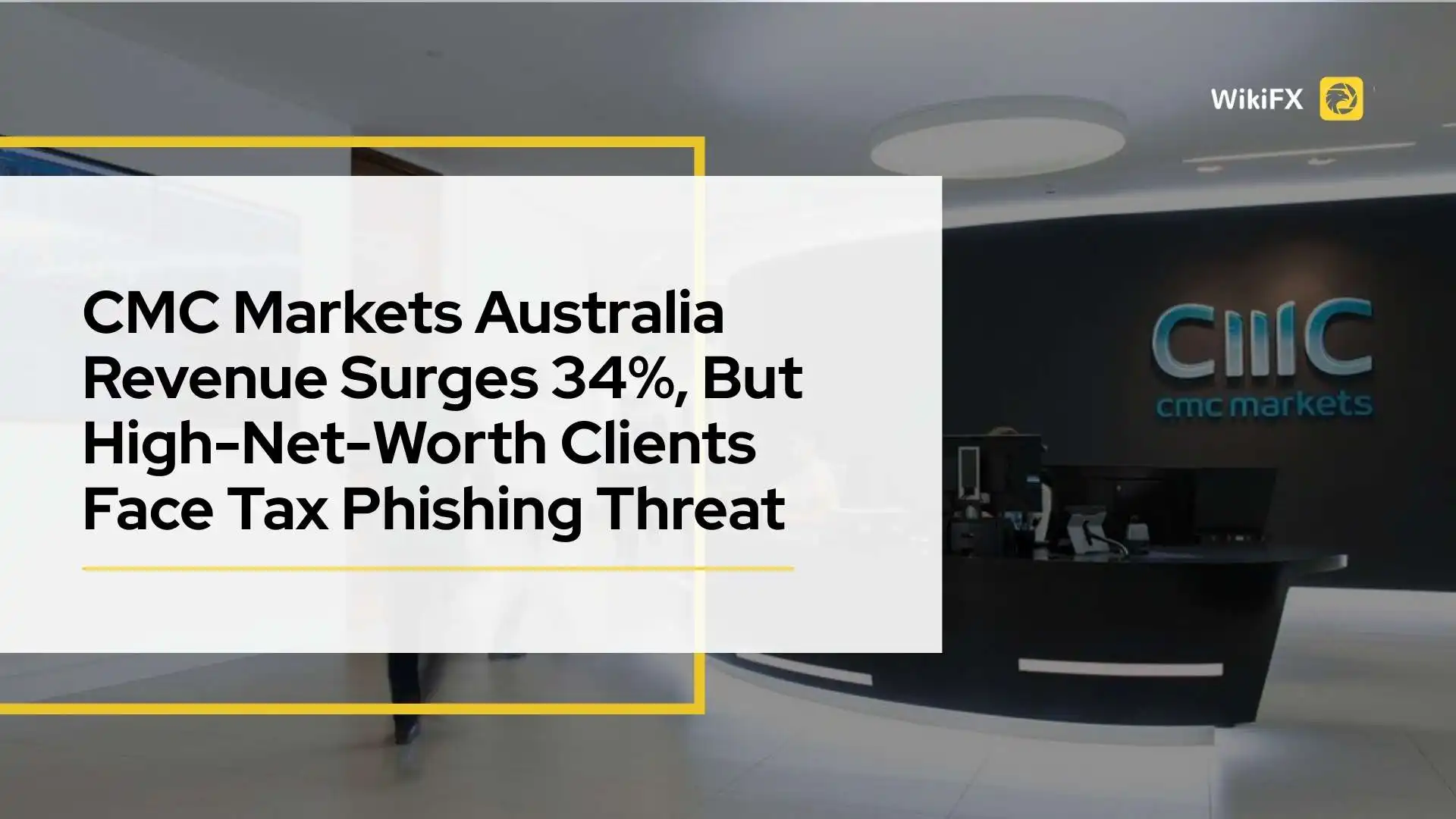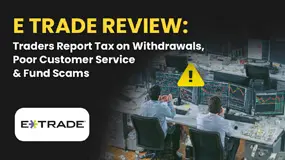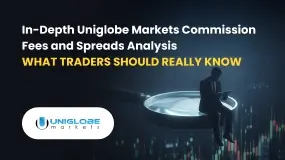简体中文
繁體中文
English
Pусский
日本語
ภาษาไทย
Tiếng Việt
Bahasa Indonesia
Español
हिन्दी
Filippiiniläinen
Français
Deutsch
Português
Türkçe
한국어
العربية
Multi-Trading Platform Brokers: The Pros and Cons
Abstract:Multi-trading platform brokers offer traders access to diverse financial instruments and global markets, cost-effectiveness, and convenience. However, traders need to be cautious about the complexity, security risks, overtrading, and technical challenges. A careful evaluation of the broker's services and the trader's needs is crucial to avoid pitfalls and achieve successful trading.

Traders may access several trading platforms and a variety of financial instruments, including stocks, commodities, currencies, and derivatives, via a single trading account when using a multi-trading platform broker, also referred to as a multi-asset broker. Brokers with several trading platforms have been more popular in recent years as traders want to access international markets and diversify their portfolios. However, multi-trading platform brokers have benefits and drawbacks that we shall discuss in this post, just like any other trading platform or financial service.
Diversification: This is one of the main advantages of utilizing a multi-trading platform broker since it enables traders to spread their money across several markets and assets. Traders may diversify their assets across several industries by having access to a variety of financial instruments, which lowers the danger of their portfolio being overexposed to one industry or asset.
Cost-Effective: Brokers with several trading platforms may also be less expensive since they often provide cheaper trading fees, commissions, and other associated costs. They may provide competitive pricing and access to a variety of marketplaces, which can result in substantial savings for dealers.
Convenience: Another benefit of having a broker with many trading platforms is that it makes trading easier for traders. Traders may access several trading platforms and instruments using a single account rather than having numerous trading accounts with various brokers. Traders can manage their assets, monitor their performance, and make well-informed choices more easily as a result.
Access to Global Markets: Multi-trading platform brokers provide traders access to international markets, especially developing areas that may not be accessible via conventional brokerage services. This gives traders new investing chances, enabling them to benefit from the expansion of the world economy and make the most of trends and movements in the market.
Cons of a Broker with Multiple Trading Platforms:
Complexity: For traders who are new to the trading business, utilizing a broker with many trading platforms might be challenging. The abundance of accessible platforms and financial tools might be confusing and result in bad investing choices. To prevent making expensive errors, traders must take the time to comprehend each trading platform and instrument they want to use.
Security risks: Multi-platform brokers often demand that traders deposit money into their trading accounts before they can begin trading. This poses a security concern since traders must make sure that their financial and personal data is safe from fraud and cyberattacks. To protect their assets and information, traders must choose a reliable broker with strong security measures.
Overtrading: Using a broker with a multi-trading platform has the potential to result in overtrading as well. Because utilizing several trading platforms is so simple and convenient, traders may be tempted to trade often. In the end, this might result in losses due to bad investment choices, and overexposure to specific markets or assets.
Platform and technical challenges: Traders who use several trading platforms are more likely to have platform downtime or connection issues, which may impair their ability to execute profitable trades. To reduce the danger of technical issues, traders must make sure they have a dependable internet connection and are utilizing the most recent software.
There are several brokers that provide services on multiple trading platforms. Several well-known brokers with several trading platforms are:



Interactive Brokers

Saxo Bank






Access to several trading platforms and financial instruments, such as stocks, FX, commodities, cryptocurrencies, and more, is provided by these brokers. Trading fees, commissions, security features, and customer service are just a few of the variables that traders should examine before selecting a broker that best suits their requirements and trading style.
WikiFX on Veryfing Broker's Regulation
Talking about Forex brokers, WikiFX, a platform that provides information on forex brokers, can help traders verify a broker's regulatory status. It explains how WikiFX's system works, which includes checking the broker's registration and licenses, regulatory authorities, and any past regulatory violations. The article also emphasizes the importance of verifying a broker's regulatory status to avoid potential scams or fraud. Overall, WikiFX can be a useful tool for traders to ensure that they are working with a reputable and regulated broker.

In conclusion, there are benefits and drawbacks to choosing a broker with several trading platforms. It gives traders access to a variety of financial products and marketplaces, but it may also be difficult to understand, encourage excessive trading, and present security problems. A reliable broker that fits their demands and trading style must be selected after carefully weighing the advantages and disadvantages. In the end, comprehensive research, a solid trading plan, and ongoing monitoring and evaluation of one's assets are the keys to successful trading.
Download and install the WikiFX App on your smartphone to stay updated on the latest news.
Download the App: https://social1.onelink.me/QgET/px2b7i8n

Disclaimer:
The views in this article only represent the author's personal views, and do not constitute investment advice on this platform. This platform does not guarantee the accuracy, completeness and timeliness of the information in the article, and will not be liable for any loss caused by the use of or reliance on the information in the article.
Related broker
Read more

CMC Markets Australia Revenue Surges 34%, But High-Net-Worth Clients Face Tax Phishing Threat
CMC Markets Australia reports a 34% revenue surge. Simultaneously, the company's high-net-worth clients are facing a serious tax-related phishing threat.

E TRADE Review: Traders Report Tax on Withdrawals, Poor Customer Service & Fund Scams
Has your E Trade forex trading account been charged a withholding tax fee? Did your account get blocked because of multiple deposits? Did you have to constantly call the officials to unblock your account? Failed to open a premium savings account despite submitting multiple documents? Is fund transfer too much of a hassle at E Trade? Did you find the E Trade customer support service not helpful? In this E Trade review article, we have shared certain complaints. Take a look!

mBank Exposed: Top Reasons Why Customers are Giving Thumbs Down to This Bank
Do you find mBank services too slow or unresponsive? Do you find your account getting blocked? Failing to access your account online due to several systemic glitches? Can’t perform the transactions on the mBank app? Do you also witness inappropriate stop-level trade execution by the financial services provider? You are not alone! Frustrated by these unfortunate circumstances, many of its clients have shared negative mBank reviews online. In this article, we have shared some of the reviews. Read on!

In-Depth Uniglobe Markets Commission Fees and Spreads Analysis – What Traders Should Really Know
For experienced traders, the cost of execution is a critical factor in broker selection. Low spreads, fair commissions, and transparent pricing can be the difference between a profitable and a losing strategy over the long term. This has led many to scrutinize the offerings of brokers like Uniglobe Markets, which presents a tiered account structure promising competitive conditions. However, a professional evaluation demands more than a surface-level look at marketing claims. It requires a deep, data-driven analysis of the real trading costs, set against the backdrop of the broker's operational integrity and safety. This comprehensive Uniglobe Markets commission fees and spreads analysis will deconstruct the broker's pricing model, examining its account types, typical spreads, commission policies, and potential ancillary costs. Using data primarily sourced from the global broker inquiry platform WikiFX, we will provide a clear-eyed view of the Uniglobe Markets spreads commissions prici
WikiFX Broker
Latest News
WikiFX's New Evaluation of ATM Capital LTD: Does its License Protect the Arab Investor?
How a Fake Moomoo Ad Led to the “New Dream Voyage 5” Scam
Is Axi Legit? A Data-Driven Analysis of Its Regulatory Standing and Trader Feedback
Trive Investigation: High Score, Hidden Risk - The Profit Paradox
In-Depth Uniglobe Markets Commission Fees and Spreads Analysis – What Traders Should Really Know
FXPesa Review: Are Traders Facing High Slippage, Fund Losses & Withdrawal Denials?
CMC Markets Australia Revenue Surges 34%, But High-Net-Worth Clients Face Tax Phishing Threat
Bessent believes there won't be a recession in 2026 but says some sectors are challenged
Young Singaporean Trader Grew USD 52 into a USD 107,700 Portfolio
Is GGCC Legit? A Data-Driven Analysis for Experienced Traders
Currency Calculator



